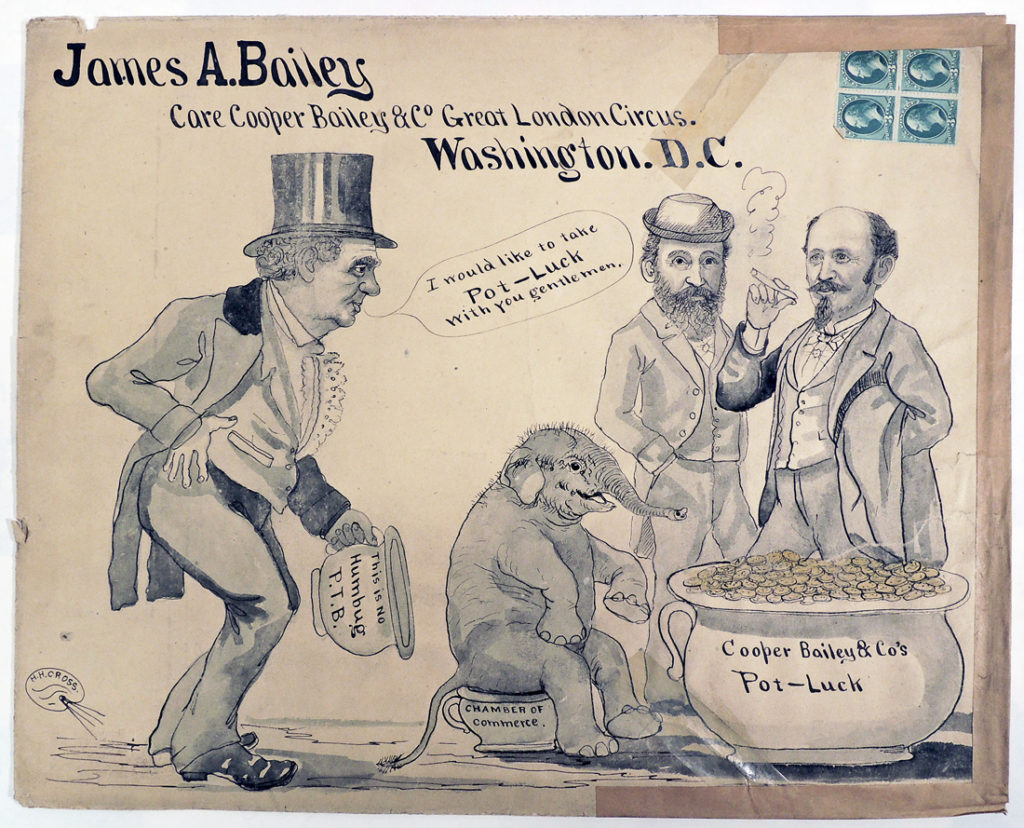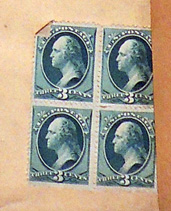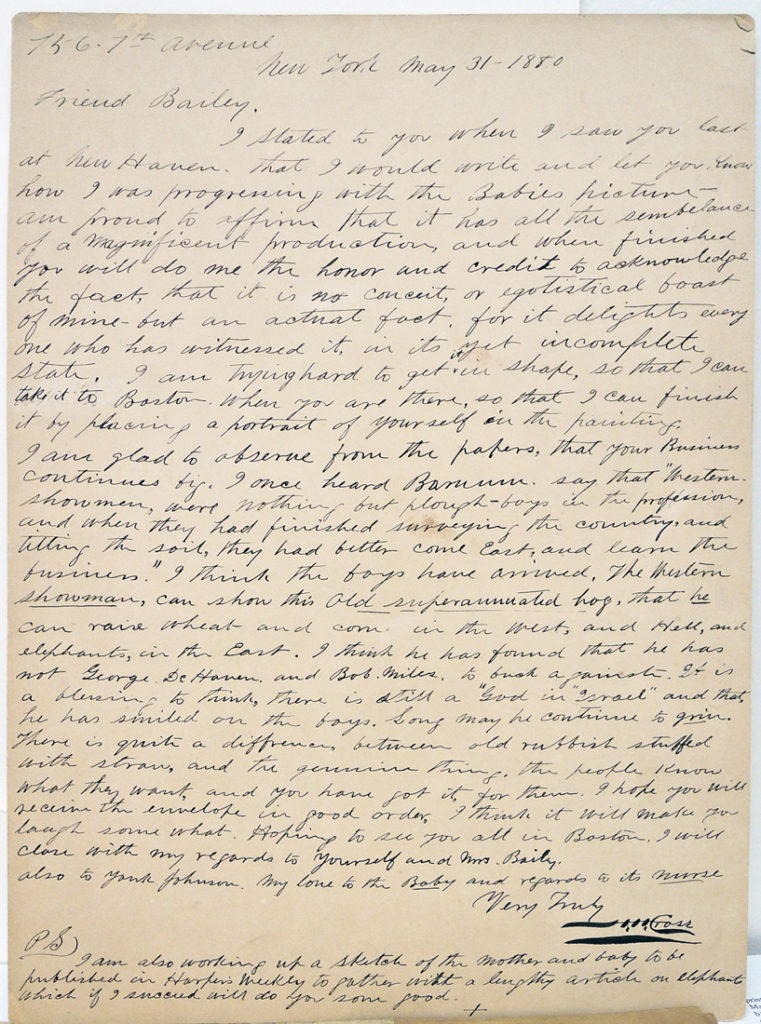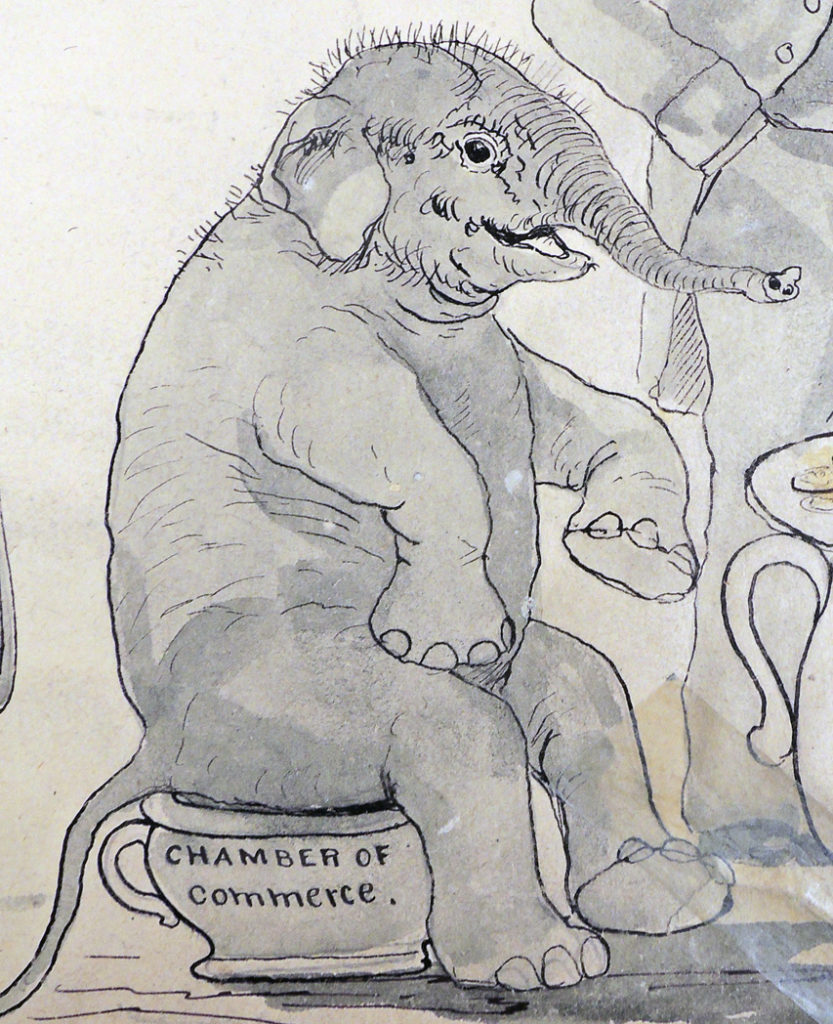In 1880, as James Anthony Bailey (1847-1906) was negotiating with P.T. Barnum (18101-1891) for the purchase of the baby elephant named Columbia, owned and exhibited in the “Cooper, Bailey & Company Great London Circus,” the artist Henry Herman Cross (1837-1918) wrote to Bailey. The envelope is beautifully illustrated with a drawing of Cooper and Bailey on the right and Barnum on the left.
The portrait of Bailey’s baby that Cross discusses in his letter is not a family portrait but the painting of his elephant. Bailey writes that it is “a magnificent production and when finished you will do me the honor and credit to acknowledge the fact, that it is no conceit, or egotistical boast of mine—but an actual fact, for it delights every one who has witnessed it in its yet incomplete state.” Cross confirms he will bring it to Boston so he can finish it by placing a portrait of Bailey alongside the elephant.

 (This letter cost 12 cents to mail in 1880)
(This letter cost 12 cents to mail in 1880)

Cross worked on a drawing for Harper’s Weekly but only this article was published, announcing “A Baby Elephant.”
A very interesting event—the birth of a baby elephant—took place at the circus stables of Cooper & Bailey, Philadelphia, early in the morning of March 10. The importance of the affair to the world of science will be realized when it is stated that it is the first authenticated instance of the kind that has ever taken place among these animals in a state of captivity. It is said that a similar event occurred in London some time during the last century, but there is no positive proof in regard to it.
At the sides of the stable-room where this little creature was born were a number of large elephants chained to posts, while Hebe, the mother, was chained in the centre of the room, where she was safe from molestation. The moment the baby was born, the other elephants set up a tremendous bellowing, threw their trunks about, wheeled around, stood on their hind – legs, and cavorted and danced in the highest glee, as though they had gone mad. The excitement communicated itself to Hebe, and she became almost frantic. With a terrific plunge she broke the chains and ropes which held her, and grasping up the little baby elephant with her trunk, threw it about twenty yards across the room, letting it fall near a large hot stove—where a fire is always kept burning—then followed with a mad rush, bellowing and lashing her trunk as though she would carry everything before her. . .

